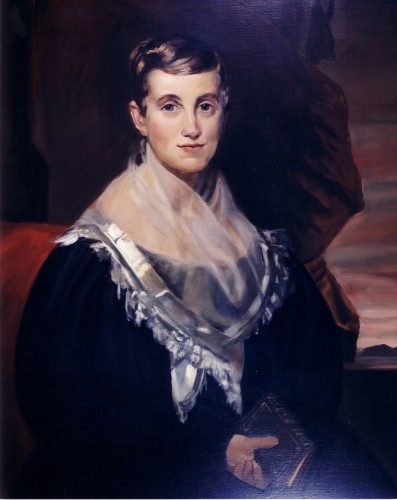Prudence Crandall (1803-1890) has the distinction of establishing the first academy for African-American women in New England. Opening in April, 1833 in Canterbury, Connecticut, the school attracted young African-American women from across the Northeast due to Crandall’s dedication and her commitment to teaching a full curriculum.
Almost immediately, Crandall began facing opposition to the school, including threats of violence. Within several months, on May 24, 1833, the state legislature passed what became known as the “Black Law”, targeted to prevent the school from operating by preventing the teaching of “any colored person who is not an inhabitant of any town of this state” without the town’s permission.

Crandall was arrested and placed on trial. The Superior Court judge, Honorable David Daggett, in his instructions to the jury stated that Negroes were not citizens within the meaning of the term as used in the Constitution of the United States. Crandall was convicted after trial and then appealed to the Connecticut Supreme Court of Errors. In her appeal, she argued that the Connecticut law was contrary to the Constitution of the United States. However, the Connecticut Supreme Court of Errors (now the Connecticut Supreme Court), did not decide the constitutional questions. Rather, it reversed her conviction because it found the language of the charging documents to be insufficient. Thus, it left for future courts and generations the constitutional questions of individual rights and states’ rights. The “Black Law” was repealed in 1838 and Crandall’s court cases were later cited in the historic trials Dred Scott v. Sanford (1857) and Brown v. the Board of Education (1954).
Concerned for the safety of herself and her students after continuous harassment, Crandall closed the school in September 1834 and moved out of state. In 1886 the State Legislature granted her a small pension, at the urging of admirers, including the author Mark Twain. More than a century later, in 1995, Prudence Crandall received the designation of Connecticut’s State Heroine.
Prudence Crandall’s legacy is celebrated at The Prudence Crandall Museum in Canterbury as well as by a statue at the Connecticut State Capitol.
See: Crandall v. The State of Connecticut 10 Conn. 339 (1834)
Doses of Connecticut Legal History
SOURCE: CT Judicial Branch
